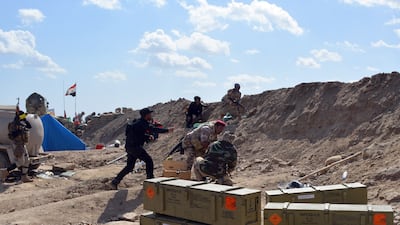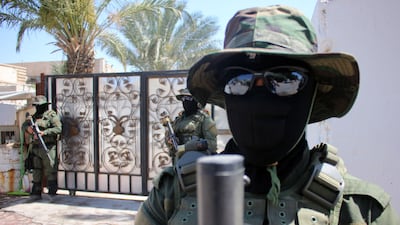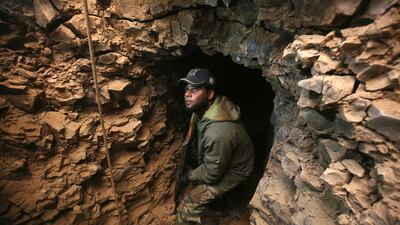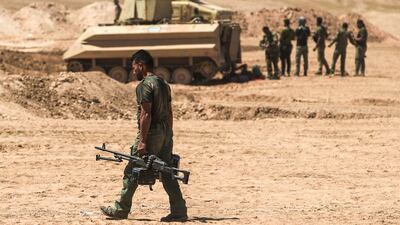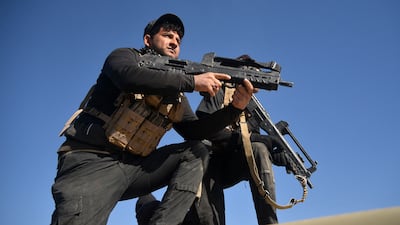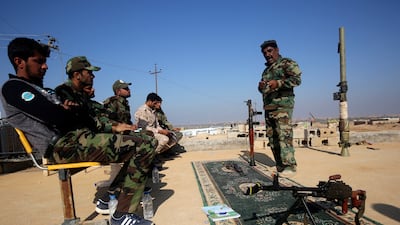Birmingham Crown Court has found a UK PhD student guilty of designing and building a “kamikaze” drone capable of delivering a bomb or chemical weapon for ISIS terrorists.
Jurors took six hours to deliberate over two days before unanimously convicting Mohamad Al Bared, who used a 3D printer to make the unmanned aerial vehicle (UAV) at his Coventry home.
Al Bared was found guilty of a single count of engaging in conduct in preparation of terrorist acts to benefit a proscribed terrorist organisation.
The 27-year-old mechanical engineering graduate was remanded in custody and told he may face a life term when he is sentenced on November 27.
In court, he denied being a supporter of ISIS or its aims, telling jurors he had no plans to assist it in any way and that he made a drone for his own research purposes.
The University of Birmingham student, who specialised in laser-drilling, also claimed to have researched ISIS to argue against its aims with others at a mosque.
But prosecutors said it was clear from encrypted online chats and other digital material that he supported ISIS, intended to make a “single-use” video-transmitting fixed-wing drone for terrorist purposes, and to travel to Africa via Turkey.
Adjourning sentence after Al Bared was convicted of preparing for terrorism between January 1, 2022 and January 31 this year, Judge Paul Farrer KC said: “The court is going to have to consider whether the appropriate sentence is one of life imprisonment.
“You have been convicted of an offence of the utmost gravity.
“A long prison sentence is the inevitable consequence of that but the length and nature of that sentence is a matter for careful consideration and the court will take that decision having received input from the Probation Service.”
Militias who played a vital role in defeating ISIS - in pictures
The UAV was found in a bedroom when Al Bared was arrested in January.
Opening the Crown’s case in August, at the start of a five-week trial, prosecutor Michelle Heeley KC told the court: “Police found a drone. They also found material suggesting this defendant supported Islamic State [ISIS], a terrorist organisation.”
The court heard Al Bared, who lived with his parents, was arrested while driving at the same time as the raid took place, and had a mobile phone which police also seized.
After showing the drone, which was in a large see-through plastic bag, to the jury, the prosecutor said it was of a type which has landing gear and a small digital camera.
“It had all the components required for it to fly,” Ms Heeley added. “We suggest it was being manufactured to deliver a bomb … to fly into ISIS enemy territory and deliver a chemical weapon or some other kind of device.”
During the opening day of the trial, Ms Heeley also told how Al Bared had filled in an ISIS application form and set up a UK-registered company to help plans for future foreign travel.
Written material saying the idea for the drone was “somewhat inspired by the design of the Tomahawk missile” was also put before the jury, in what the Crown said was Al Bared describing his building process.
Ms Heeley said of the evidence found on an electronic device, which also included references to fuses, mechanical detonators and an “explosive” head: “He is literally reporting back to someone about what it is that he is doing.
“What drone for legitimate use needs an explosive head?
“What does need an explosive head is a drone that has been designed on a missile.”
Al Bared’s barrister, Alistair Webster KC, also made an opening speech, claiming his client had studied ISIS-linked material, including video of beheadings, because he wanted to “debate” against the terrorist group’s views.
“He accepts that he is fascinated by Islamic State and its mindset, but rather than supporting it he wanted to argue against it, in the mosque, online," Mr Webster said.
But Al Bared was described by anti-terrorism officers as someone with an extremist mindset who intended to cause mass casualties.
Commenting on the investigation, Detective Chief Superintendent Mark Payne, commander of the West Midlands Counter-Terrorism Unit, said: “He has built in his home address, using a 3D printer, a drone.
“He has then researched chemicals including sarin, ricin and mustard gas.
“It is our clear view that this man was very, very dangerous, that he was building something that was a weapon to be used to deliver chemicals to cause harm to people who didn’t share his extremist views.
“This is clearly somebody who had a terrorist mindset.”
DCS Payne said the inquiry had established that Al Bared – a “very, very intelligent” student – was planning to travel abroad to Turkey and probably onwards.
“We also found an application form for Islamic State on his devices,” the officer said.
“And that alongside all the other evidence that we had gives us a really clear picture of somebody who was intent on working with a terrorist organisation to cause mass harm, and probably fatalities to innocent people.”


